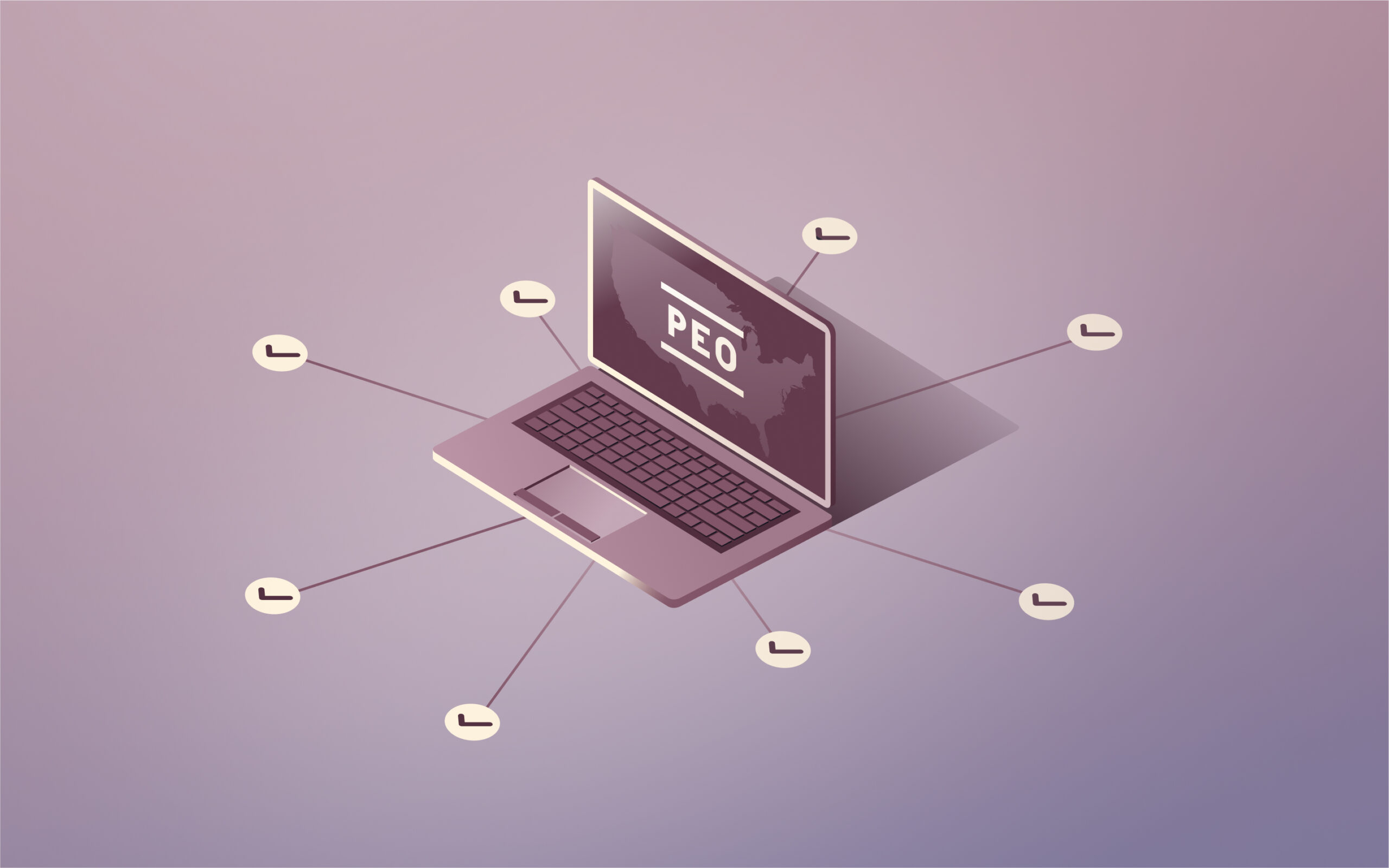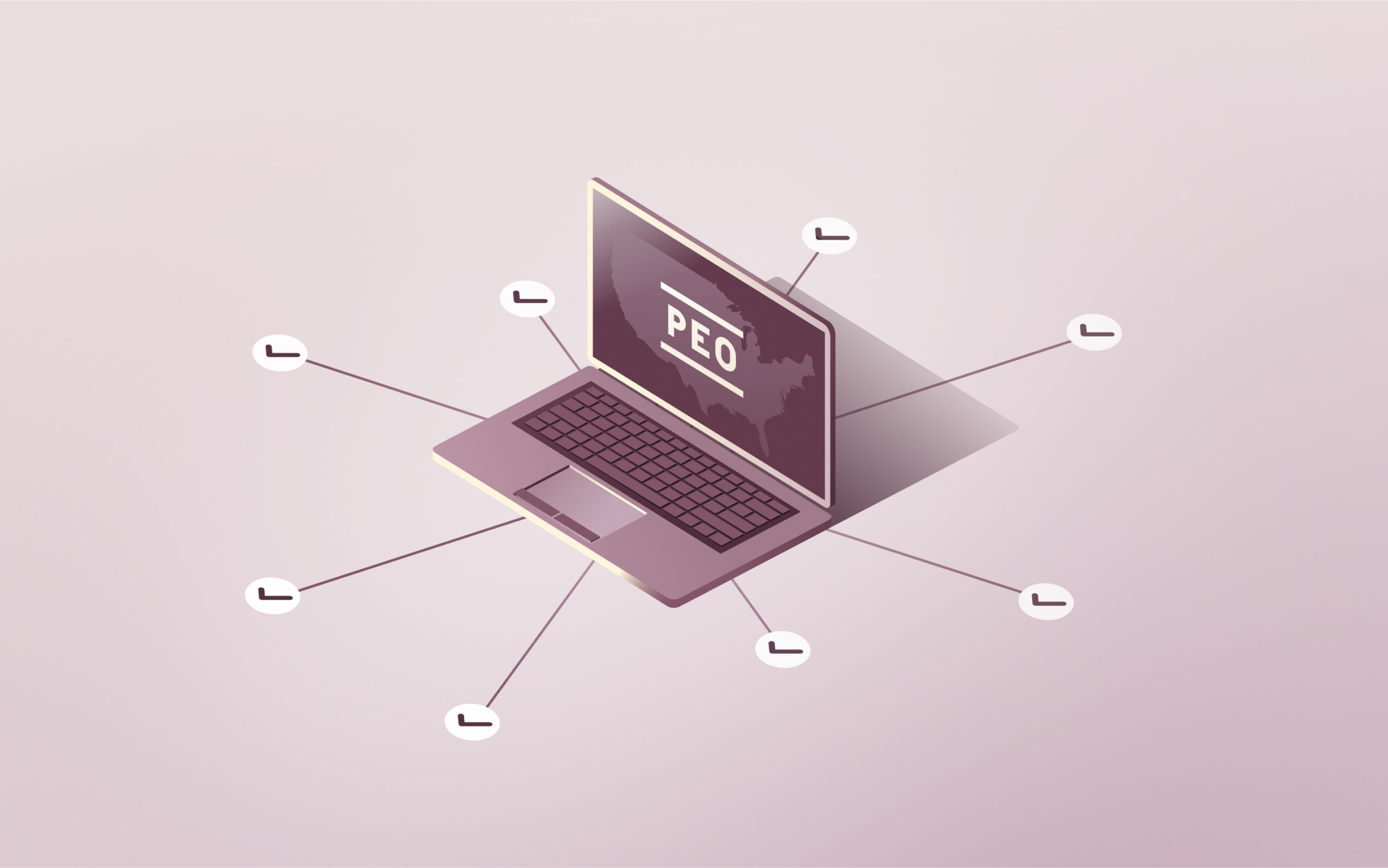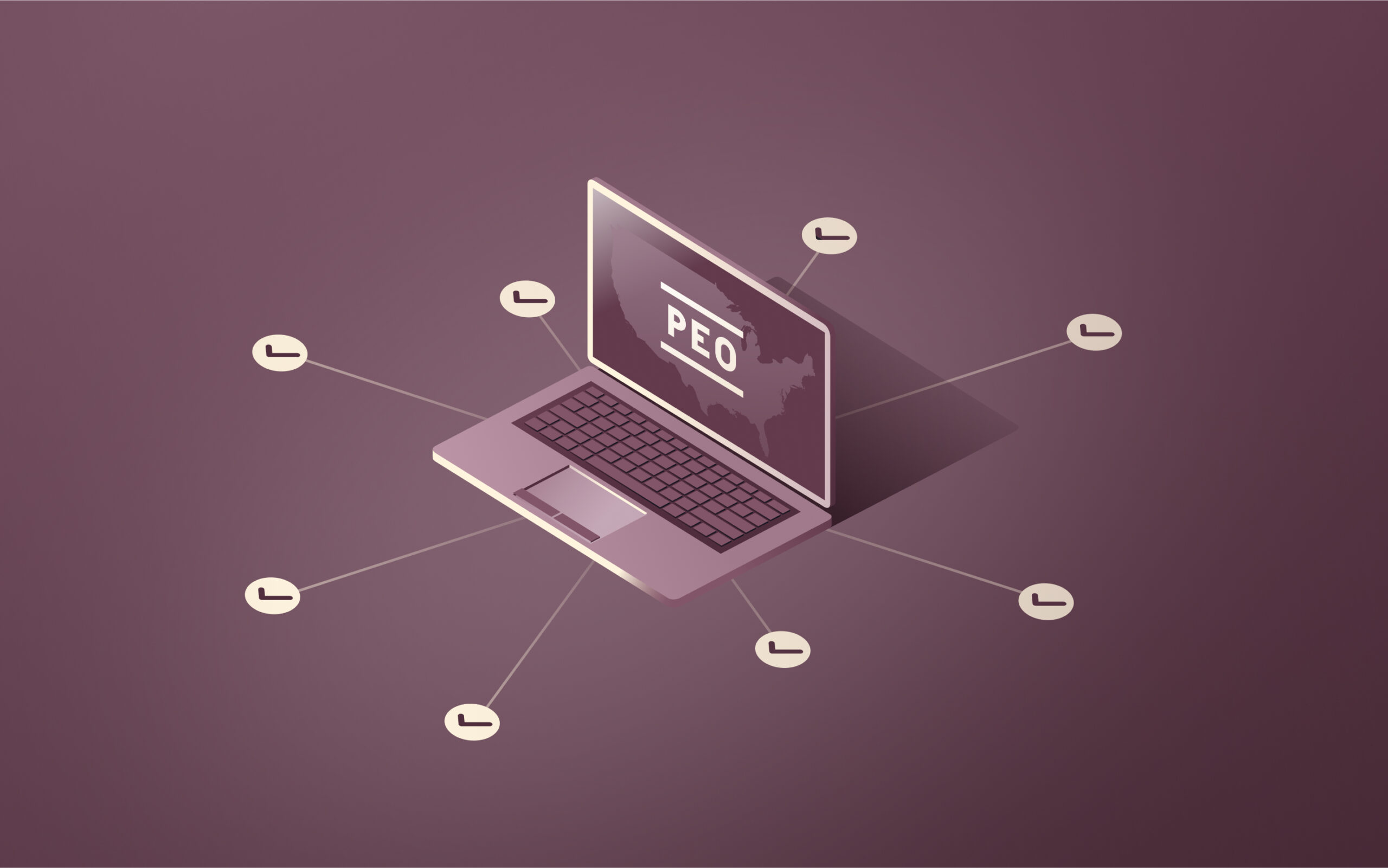PEO in Hawaii [2025]

A professional employer organization (PEO) can help small and mid-sized businesses shrink their administrative human resources demands. They can automate and streamline a host of HR functions, including payroll, benefits administration, compliance oversight, and workers’ compensation insurance. At the same time, PEOs enable businesses to offer their workforce access to superior benefits packages at a lower cost.
The Aloha State isn’t necessarily a paradise for business owners. Complex logistics, soaring transportation costs, a high cost of living, and corporate taxes of up to 6.4% are just a few reasons why doing business in Honolulu and across Hawaii can be challenging. Amongst US states, Hawaii ranks near the bottom for its business climate. However, a PEO can assist small businesses in Hawaii by reducing their HR costs and providing access to more affordable employee benefits.
Before teaming up with a PEO, exploring your options is vital. That’s where this article can help. From automatic state tax registration to remote IT management, Rippling PEO makes hiring and onboarding in Hawaii and the US a breeze.
Benefits of using a PEO in Hawaii
Working with a PEO has many benefits, including reducing administrative busy work, gaining access to superior and lower-cost benefits, and providing professional HR expertise and ongoing support.
Outsource administrative HR work
By teaming up with a PEO, you co-employ your workforce, allowing for a division of employer duties between you and the PEO. This partnership designates you as the worksite employer, and you keep the power to manage hiring, termination, compensation, and overall business strategy for your company. This includes functions like customer support, research, sales, and marketing.
The PEO becomes the administrative employer, taking on the responsibility of employing your workers under its federal tax identification number (EIN). This arrangement enables the PEO to handle various employment-related duties, such as payroll, HR compliance, benefits management, and more.
PEOs streamline your HR management and reduce risks by utilizing technology, expertise, and established processes. This relieves your team from tedious manual tasks, enabling them to concentrate on strategic work that drives business results for your organization.
Better employee benefits, with cost savings
The latest stats from the National Association of Professional Employer Organizations (NAPEO) reveal the growing popularity of PEOs. Over 500 PEOs are active in the US. Between them, they co-employ 4.5 million people at more than 200,000 businesses. Because PEOs “employ” so many people from so many companies, they can negotiate with insurance providers to access lower-cost benefits without sacrificing quality.
Offering high-quality benefits is key for hiring and retaining the best talent, but smaller businesses may be unable to shoulder the additional cost. Using these economies of scale, PEOs can provide employees of those businesses access to higher-quality benefits plans, often including health insurance, disability and life insurance, workplace benefits, mental health support, commuter benefits, and retirement plans.
Federal law requires employers with 50 or more full-time employees to provide them with health insurance benefits. In addition, the State of Hawaii’s Prepaid Health Care Act requires employers with one or more employees to offer approved health insurance coverage to employees who meet the eligibility requirements. This coverage includes full and part-time employees, whether they’re permanent or temporary. Partnering with a Hawaii PEO can help businesses deliver the healthcare benefits they must provide, plus other attractive benefits employees want at more affordable rates than they could otherwise get.
Worry-free compliance with Hawaii laws
Complying with complex federal labor and employment regulations is just the beginning. Businesses on the islands also have to abide by state-level and local Hawaii laws. Not only that, but they also have to stay on top of constant changes.
Minimum wage is a good example. In Hawaii, the minimum wage increased to $14.00 per hour on January 1, 2024 (higher than the federal minimum wage of $7.25 per hour). It rises to $16.00 per hour in 2026 and $18.00 per hour in 2028. There are also lower minimum wages for tipped workers and those employed in industries like agriculture.
Keeping up with these changes and differences is difficult, especially if you have remote employees in Hawaii and nationwide. A PEO like Rippling automatically identifies minimum wage violations, regardless of the jurisdiction, ensuring you’re always compliant.
PEOs can help you do much more than just avoid minimum wage violations. They offer legal and compliance support in many areas, including:
- Payroll regulations
- Classifying employees and contractors correctly
- Issuing and submitting required tax forms and documentation
- Reporting, collecting, and filing payroll taxes with the correct agencies at the right times
- Complying with other wage regulations, such as overtime laws
- Benefits laws
- ACA
- COBRA
- FSA
- HSA
- Other federal and state benefits-related regulations
- Labor laws
- Supplying workers’ compensation insurance
- Following Equal Employment Opportunity (EEO) laws
- Displaying state-required labor information posters
Violating state and federal labor and employment laws comes with a high cost. The IRS estimates that 40% of small businesses are on the hook for costly payroll fines and penalties every year. Compliance support from a PEO will save you headaches and help you avoid financial penalties.
Dedicated support team
PEOs are HR pros. By joining a PEO, your company unlocks a wealth of expertise, which is especially beneficial for startups and small businesses that lack these resources in-house. A good PEO saves you time and money and provides expert guidance on effective benefits administration, training managers, reviewing health and safety practices, creating employee documentation, and other challenges you may face.
What to consider when evaluating a PEO service in Hawaii
As you assess the various PEO options in Hawaii, keep these guidelines in mind to find the best fit for your company:
- Your business needs. Typical PEO services include:
- Handling payroll processing
- Tax reporting and compliance
- Regulatory compliance
- Administering employee benefits
- Recruiting and onboarding assistance
- Safety compliance and risk management
- Time and attendance tracking
- Workplace policies
- HR outsourcing
- Pricing. PEOs utilize different methods for determining prices, with most charging per-employee monthly rates or a percentage of each payroll run. Consider the potential future expansion of your business and whether you’ll still be able to afford the PEO if your number of employees increases.
- Experience and reputation. Has the PEO established partnerships with similar businesses in Hawaii? Is it held in high regard? It may be helpful to investigate review platforms like G2 and Capterra and gather feedback from past and present clients.
- Benefits. Investigate the quality, variety, and price of benefits options you can access through the PEO. Ensure that they meet the desires and requirements of your staff.
- Renewal rates for employee benefits. Does the PEO provide clear information on how much their benefits plans will increase year-to-year? Some PEOs significantly raise renewal rates, causing businesses to face unexpected financial burdens or the trouble of finding a new PEO after only one year. It’s vital to choose a PEO that openly discloses their rate increases.
- Integrations. What technology and processes will the PEO integrate into your systems and tools?
- Industry specialization. If you operate in a niche market, partnering with a PEO with expertise in that field can be beneficial.
- Do you require certain legal or compliance expertise? If your company must adhere to specific federal or state regulations or address other legal concerns, it might be advantageous to find a PEO with specialized experience in those areas.
- What if you leave the PEO? You may eventually want to transition away from the PEO, whether to bring HR processes in-house or switch to a different arrangement. Keep in mind that many PEOs make it difficult to leave, often requiring a complicated and complete reset of systems. It’s important to consider this potential scenario before committing to a PEO.
Why Rippling PEO is the right choice for your Hawaii business
Rippling PEO is the first to integrate HR, IT, and Finance into a unified platform, simplifying and streamlining all of your administrative tasks—from remote IT management to a 90-second new hire onboarding process. Unlike many PEOs operating on outdated 1980s software, Rippling uses a modern and user-friendly platform.
We take care of all essential compliance duties, such as tax reporting, workplace safety oversight, and automatically identifying minimum wage and overtime infringements. Additionally, Rippling offers your team access to big-company benefits at budget-friendly rates.
With Rippling, you get:
- HR, IT, and Finance integrated in a single platform
- Efficient and customizable employee data reporting
- Resources for effectively overseeing remote teams, including state and local tax reporting, benefits administration, and remote device management
- Access to high-quality benefits plans, plus predictable, below-average renewal rates
- Automatic detection of federal, state, and local compliance violations, along with suggested solutions for remediation
- Automated risk management processes, including ACA and COBRA administration, anti-harassment training, and digital labor law poster distribution
- Access to a wide range of HR resources, guides, and pre-built templates
In the event that you choose to bring your HR in-house, switching on and off Rippling PEO is a simple process. Unlike other PEOs that involve a painful transition, Rippling allows for a smooth move to our all-in-one workforce management platform. Your HR, payroll, and employee information will remain in your account, integrations with other systems will stay intact, and your employees can continue to use Rippling with their current logins—the same way they did before.
FAQs about PEOs in Hawaii
What is a PEO, and how does it work?
A PEO collaborates with a business to offer a variety of HR solutions, such as payroll services, employee benefits management, HR administration, risk mitigation, and compliance guidance. They typically adopt a co-employment approach, where the PEO assumes legal responsibility as the employer of the company’s staff for tax purposes.
How does a PEO arrangement affect control over my employees?
Businesses maintain authority over strategy, daily operations, and staff supervision. The PEO takes care of HR responsibilities and employment-related tasks.
What is a Certified PEO?
A Certified PEO (CPEO) is a PEO that meets specific IRS standards regarding its experience, financial stability, reporting, and background. Although certification isn’t mandatory and doesn’t imply IRS endorsement, it does indicate that the PEO has successfully completed the evaluation. CPEO status used to offer tax benefits for businesses, but these days, the advantages of certification are mostly outdated.
What size company can benefit from a PEO?
Although PEOs are suitable for companies of all sizes, small and mid-sized businesses typically reap the most advantages. By outsourcing manual HR tasks, businesses can cut down on administrative expenses and shift their focus to more strategic work. They also gain access to top-notch benefits packages that may have been out of reach otherwise.
How does a PEO charge for its services?
Costs will depend on the number of employees in your business and the breadth of services the PEO handles for you. Charges are often based on either a set fee per employee or a percentage of the overall payroll.
What is the implementation process, and how long does it take to go live?
At the beginning of the process, the PEO typically gathers employment-related information, including payroll data, employment records, and benefits details. They will then implement any new benefits and configure systems to manage your HR tasks. This often involves integrating their technology with your existing systems. Additionally, they may conduct onboarding sessions to explain updated procedures and benefits and train your team on their systems.
The implementation process can last from a few weeks to a couple of months, depending on the scope of services needed and the size of your business.
Are PEOs regulated?
Yes, PEOs must comply with both federal and state regulations. Many also gain accreditation from industry organizations to increase their credibility.
Are PEOs in Hawaii required to have special certifications or licenses?
PEOs operating in the state must register with the Hawaii Department of Labor and Industrial Relations under the Professional Employer Organization Program. They also require a Certificate of Authority from the Hawaii Department of Commerce and Consumer Affairs to operate in the state. PEOs must follow relevant state regulations, and sponsored health plans must comply with the Hawaii Prepaid Health Care Act.
What happens if I want to terminate my relationship with a PEO?
Ending the partnership with most PEOs involves a painful and inconvenient process of removing their systems from your business, followed by the difficult task of finding alternative solutions for payroll, benefits, and all of the other services the PEO previously provided.
With Rippling PEO, moving off the PEO is as simple as turning it off and transitioning to our all-in-one workforce management platform. All your systems, data, and integrations will remain intact.
In what states is Rippling PEO available?
Rippling PEO is available in every US state.
Disclaimer: Rippling and its affiliates do not provide tax, accounting, or legal advice. This material has been prepared for informational purposes only, and is not intended to provide or be relied on for tax, accounting, or legal advice. You should consult your own tax, accounting, and legal advisors before engaging in any related activities or transactions.






